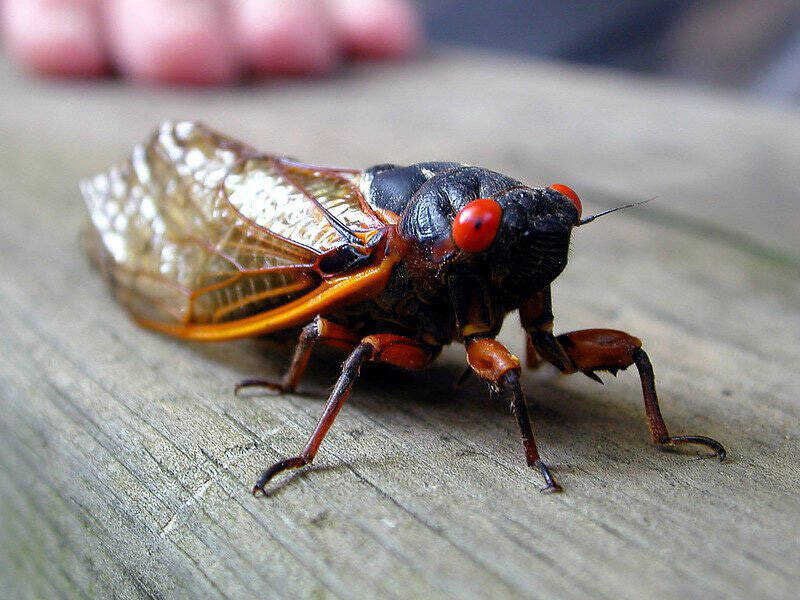Listen closely for periodical cicadas

Any day now we should begin hearing the familiar sound of the periodical cicada.
Each of the different species of annual cicadas has a unique call. One you might recognize is that of the “scissors grinder” cicada. The periodical cicada species, however, makes unique mating calls that differ from most of our annual cicadas. The unique mating call of the periodical cicada is “pha-raoh.”
Why do individuals want to know when periodical cicadas emerge? There are a couple reasons that come to mind. First, is because this doesn’t happen every year.

Periodical cicadas may live as nymphs for 7, 13 or 17 years (depending upon the species) and then they undergo a very well synchronized mass adult emergence. All three 17-year species, Magicicada septendecim, Magicicada cassini and Magicicada septendecula will emerge this year.
The second reason is because periodical cicadas can cause damage to plant life. While cicada nymphs feed on roots, damage to trees is rarely caused by cicada feeding. The primary way cicadas damage trees, shrubs, etc. is when they slice open the bark of branches and twigs with their ovipositors. Ovipositor refers to the organ by which some female insects lay their eggs.
The damage worsens when the cicada population is larger. This year, the population of periodical cicadas is estimated to be rather large.
Female periodical cicadas will lay eggs on branches and twigs that are between 3/16 and 7/16 inches in diameter. This means that smaller, younger trees are most at-risk for extensive damage. Some of the plants that are of higher risk include: Maples, redbud, dogwood, cotoneaster, hawthorn, ash, apple, crabapple, oaks, roses and weigela.
If you are worried about periodical cicadas damaging your plants, try to exclude them from the plant by covering it with half-inch (or smaller) mesh screening. If they do damage the branches, only prune them after the cicada flight is over. If you are unable to exclude them, you could apply an insecticide as a last resort. If you would use an insecticide, use one with the active ingredient of permethrin or cyfluthrin. As with any insecticide, read and follow all label instructions. Remember, the label is the law.
It is estimated that this year’s periodical cicada flight will last 5 to 6 weeks once it starts. This flight should start mid-May. If you would like to learn more about periodical cicadas, please consider viewing Cicada Watch 2021, hosted by the Putnam County Master Gardener Association. This video featuring Tabby Flinn and Bob Bruner with Purdue Extension, can be found at: https://youtu.be/yjA0ENhyLTg
Visit www.extension.purdue.edu/putnam or contact the local office by calling 653-8411 for more information regarding this week’s column topic or to RSVP for upcoming events. Office hours are Monday through Friday from 8 a.m.-noon and 1-4 pm. Evening and lunch appointments are available, upon request. It is always best to call first to assure items are ready when you arrive and to RSVP for programs. While many publications are free, some do have a fee.
Upcoming Events:
May 15 – All 4-H livestock must be enrolled in 4HOnline.
May 17 – Beware! Toxic Plants Are Out, Virtual on Zoom at noon, register at https://tinyurl.com/WIAWebinars21.
May 18 – Walking Group, 9 a.m., Big Walnut Sports Park.
May 24 – ServSafe Food Managers online exam, 9 a.m., register at https://purdue.edu/servsafe/workshops.
May 25 – Walking Group, 9 a.m., Big Walnut Sports Park.
May 31 – Extension Office closed in observance of Memorial Day.
June 7 – Dairy: Good for the Gut! Remember Food Safety! Virtual on Zoom at noon, register at https://tinyurl.com/WIAWebinars21.
